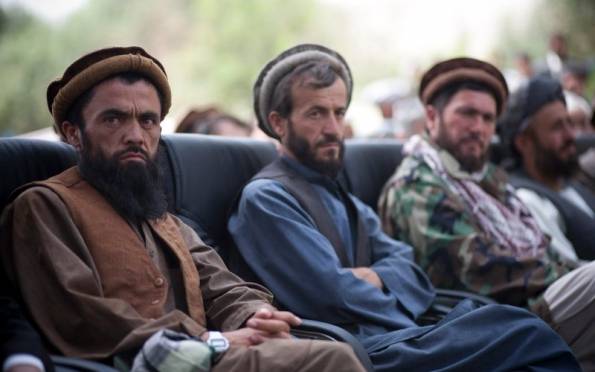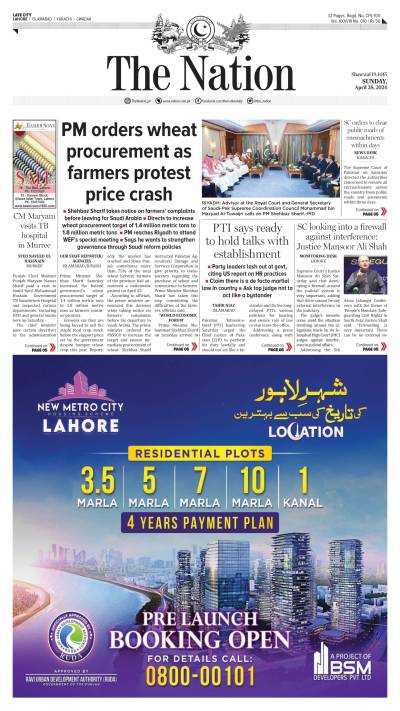The Afghan Taliban’s refusal to hold direct peace talks with the Afghan government is a blow to the international efforts to revive the long – stalled negotiations aimed at ending the deadly 14 year insurgency. One of the preconditions for dialogue was the departure of foreign troops from Afghanistan. The second thought and refusal could perhaps be linked with a string of military victories for the insurgent group after NATO formally ended its combat operations more than a year ago. Even if Pakistan has some influence on Afghan Taliban, it is for them and the Afghan government to negotiate. Pakistan has been a member of quadrilateral co-ordination group which also includes Afghanistan, the United States and China. Afghan President Ashraf Ghani has renewed his dialogue offer to the Taliban and said they had to pick between peace and war. He said, real peace cannot come from behind closed doors. Afghanistan and Pakistan both are suffering because of terrorism and need to reach an agreement.
In spite of Indian protests and a campaign against Pakistan, United States notified sale of eight F-16 fighter aircraft to Pakistan. The notification states that the proposed sale contributes to the United States goals by helping to improve security of a strategic partner in South Asia. India’s arms-race is worrisome. Pakistan has to have readiness and preparedness for self defence and to counter external threats and nefarious efforts to destabilize Pakistan.
Peace is necessary in the interest of both Pakistan and India. The Pakistani High Commissioner in India, Abdul Basit addressing an event held in Jaipur, said that Prime Minister Nawaz Sharif wants good relations with India and that good ties between India and Pakistan was the need of the hour. But India has never responded to reciprocate with sincerity and good intentions. Taking the level of cooperation with India to a new level, Pakistan’s National Security Adviser (NSA)Nasir Khan Janjua has conveyed to his Indian counterpart Ajit Doval that ten terrorists have sneaked into Gujrat State. Security observers believe that the information sent by Pakistan has significantly raised the level of cooperation between the two countries. But it remains to be seen if the two rival countries can build on this.
Pakistan is helping India sincerely and practically in tackling issues such as the attack on Pathankot Air Base. India should be thankful for these measures , where people of Pakistan expect reciprocity from across the border. Normalization of relations, if not friendship is the need of our time to help the people of the two neighboring countries to improve their level of living. People seek peace and security to live their lives meaningfully in search of bright future for the generations to come. They look forward to hope and change.
Instability, insecurity, crime and injustice in a society draw our attention to institutional structure and functions and dispute resolution system. There are tons of cases pending in Pakistan. The judicial procedure may be complicated for the people, but there is no imperfection in our existing judicial system, as the same system is working quite well in other parts of the world, said the Supreme Court Chief Justice Anwar ZaheerJamli. He underscored the need for an alternative dispute resolution system in rural areas to make dispensation of speedy and inexpensive justice to the people possible and available.
The media could highlight and help in this context. Option could be given to the people to resolve their issues through negotiations. Chief Justice Jamali further stressed the need to involve all state institutions in the important task of resolution of disputes and conflicts. It was essential to draw a line of demarcation between “Truth and Falsehood”, he said.
Sanity should prevail and realistic rethinking is needed to support the action the government in Pakistan takes in the right direction, particularly in the context of showing courage and tasteful behaviours against those who take the law in their own hands. In context of extremism and terrorism Pakistan cannot afford to support ideologies contrary to our national interests. The patriots would look beyond politics and vested interests when the question relates to surviving with dignity. Politicians have the responsibility to do the right things and do things right. Only the leaders with vision and clear perspective and perceptions could deliver to the expectations of the people.
A review of structure and functions of all state institutions is over due to assess what needs to be done to improve the efficacy and effectiveness of institutions that have public decaling on daily basis. This involves a relook at how functional is the system of authority, responsibility and accountability. Our state institutions no longer work in normal peace time environment. Extra-ordinary environment and pressures, due to extremism and terrorism demand much more to be understood and accomplished on the domestic front and in foreign policy .The situation is becoming more and more complex and difficult in our relations with neighbours India and Afghanistan. This adds to our worries on the home front with crises of multiple dimensions. And terrorists attacks on our institutions and innocent unarmed citizens.
Without giving authority we cannot expect state functionaries to deliver in terms of responsibility and accountability. Director General Rangers Sindh has prayed to the Supreme Court of Pakistan that effective steps need to be taken to ‘depoliticize’ the police department.
Rangers seek powers to book, probe, and prosecute terrorists and criminals. The honourable court and the government need to act to enable the rangers to perform better than before to clear the mess and menace of terrorism and bring criminals to justice. Justice, peace and stability is what Pakistan and people of Pakistan need.






